I'm trying to use the following code in my custom view Tile.m:
- (void)awakeFromNib
{
[super awakeFromNib];
static NSDictionary* const letterValues = @{
@"A": @1,
@"B": @4,
@"C": @4,
// ...
@"X": @8,
@"Y": @3,
@"Z": @10,
};
NSString* randomLetter = [kLetters substringWithRange:[kLetters rangeOfComposedCharacterSequenceAtIndex:arc4random_uniform(kLetters.length)]];
int letterValue = [letterValues[randomLetter] integerValue];
_smallLetter.text = _bigLetter.text = randomLetter;
_smallValue.text = _bigValue.text = [NSString stringWithFormat:@"%d", letterValue];
}
Unfortunately this gives me compile error Initializer element is not a compile-time constant and I have to remove the static keyword to get my app compile in Xcode (here fullscreen):

I think I initialize the NSDictionary correctly - by using the new Objective-C Literals syntax.
But why can't I use static here?
I thought it would be appropriate here to make sure that my letterValues constant is set only once?